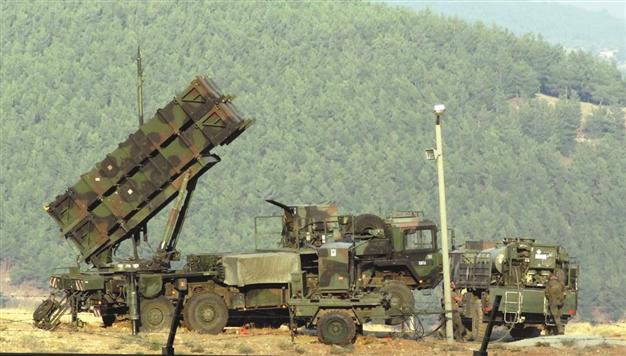Turkish officials provide reassurances that a new Chinese-designed missile defense system worth $3.44 billion will integrate into the alliance’s system.
 A controversial air and missile defense system Turkey intends to buy from a Chinese manufacturer will be automatically integrated withNATO assets stationed in Turkey, the country’s top defense procurement official has revealed in an effort to allay concerns about the recent purchase.
A controversial air and missile defense system Turkey intends to buy from a Chinese manufacturer will be automatically integrated withNATO assets stationed in Turkey, the country’s top defense procurement official has revealed in an effort to allay concerns about the recent purchase.
Murad Bayar, head of the Undersecretariat for Defense Procurement, told the Hürriyet Daily News that full integration with NATOassets was an explicit condition in the contract for the planned air defense system.
“As part of this program, a Turkish defense company will be tasked with integrating the air defense system into a network operated by the Turkish Air Force. That integration will mean integration with NATO assets, too, since the Turkish system is fully integrated with the NATO system,” Bayar said.
Bayar said the much-debated Chinese bid from China Precision Machinery Export-Import Corp. (CPMIEC), which won the tender Sept. 26, came in at $3.44 billion; the initial contract price was estimated at $4 billion.
Turkish Defense Minister Ismet Yilmaz announced after a top defense industry meeting Sept. 26 that a contract for the construction of long-range air and anti-missile system was awarded to China Precision Machinery Export-Import Corp. (CPMIEC).
The Chinese contender defeated a U.S. partnership of Raytheon and Lockheed Martin, offering the Patriot air defense system; Russia’s Rosoboronexport, marketing the S-300; and the Italian-French consortium Eurosam, maker of the SAMP/T Aster 30.
Under the program, dubbed T-LORAMIDS, Turkey will start contract negotiations with CPMIEC, the front-runner of the competition and, if these talked failed, with the Eurosam consortium, the second best offer according to a grading of bids, according to Bayar. The U.S. Patriot system was ranked third. Bayar said the Russian option had been eliminated entirely.















